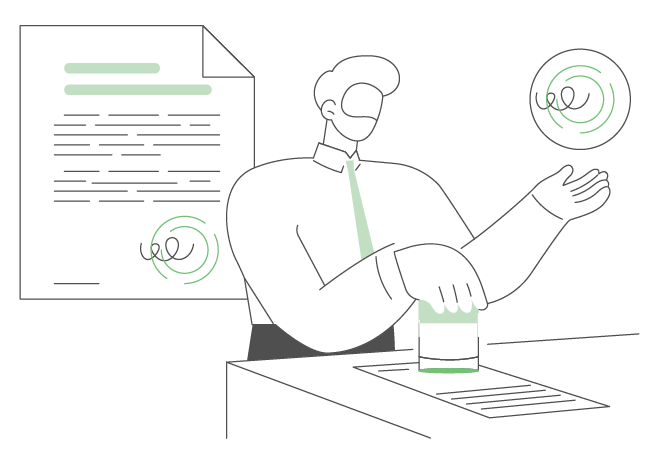Automation in Government Agencies – Better, Cheaper, Faster


Mar 26 · 5 min read
“Better, cheaper, faster…pick any two” used to be the mantra for innovations. The implication is that you cannot have it all. Arguably, government agencies were the most reluctant to make that choice because surely they would be hounded for the compromise, which somewhat constrained the case for change.
The common thread running through government departments is the challenge of operating services at scale while ensuring continuity of service. The private sector can usually start small and grow while experimenting in the hoof. However, even the most cynical public procurement professionals must now question the premise that speed, cost and quality are inherently in tension. Let’s use Legito as an example, but apply the points below to any solution designed with the same ethos:
Better, cheaper, faster
The people who know best how to make things better are already working for you. They are employees, and they are also service users, or they have family and friends who are service users. You have subject matter experts who grasp the complexity, variability and vulnerability of the services needed by the community they serve. They see beyond simplistic approaches.
Legito is in a class of modern software that is designed to be deployed by subject matter experts. Gartner calls them ‘Citizen Developers’, and now is the era for citizen developers to make an impact. Citizen developers are uniquely placed to make things better.
Better, cheaper, faster
We could talk about return on investment, but let’s zoom in on the key difference between modern cloud-based solutions and the type of system that previously required a big IT project and cumbersome IT infrastructure. Solutions like Legito are available on demand; moreover, they scale on demand.
Many teams will start with a free trial and won’t spend anything (other than time) until a proof-of-concept is running for all to see. Use it to measure the cost in a way that aligns with your department’s approach. Verify that it will be cheaper than the status quo. Even in the short term – who doesn’t like quick results in the public arena?
Better, cheaper, faster
 Speed is an inherent feature of automation attracting the least skepticism. However, it could be an illusion, especially for public services. Public services serve the public, of course. There is no group of end customers with more diverse needs than ‘the public’. Ostensibly simple processes are never actually simple in government departments. Unlike the private sector, government agencies cannot pick a target market with neatly defined needs.
Speed is an inherent feature of automation attracting the least skepticism. However, it could be an illusion, especially for public services. Public services serve the public, of course. There is no group of end customers with more diverse needs than ‘the public’. Ostensibly simple processes are never actually simple in government departments. Unlike the private sector, government agencies cannot pick a target market with neatly defined needs.
Automation solutions are not faster if they are too simplistic to get the job done – you just end up with large volumes of exceptions that require manual re-work. The capabilities of software like Legito are growing rapidly and frequently, and are rolled out to all organizations. The solution is highly configurable by your subject matter experts, rather than demanding custom software development from the Legito engineering team. Most users won’t need to use all the features, but they’re there when you need them. A greater breadth of capability means solutions can handle complexity.
Funding from taxes poses a dilemma that favors automation where possible: productivity isn’t what it should be, and governments need productivity to balance the books while maintaining services. The post-Covid era has exacerbated an existing problem because more people are economically inactive. There are fewer people to deliver services and pay taxes, but the demand for services is increasing. Difficult funding choices are imposed by government budgets. The financial and opportunity costs of not automating repeatable tasks and processes will impact the state’s ability to deliver services that only humans can perform.
Automation in Government Agencies – Better, Cheaper, Faster


Mar 26 · 5 min read
“Better, cheaper, faster…pick any two” used to be the mantra for innovations. The implication is that you cannot have it all. Arguably, government agencies were the most reluctant to make that choice because surely they would be hounded for the compromise, which somewhat constrained the case for change.
The common thread running through government departments is the challenge of operating services at scale while ensuring continuity of service. The private sector can usually start small and grow while experimenting in the hoof. However, even the most cynical public procurement professionals must now question the premise that speed, cost and quality are inherently in tension.Let’s use Legito as an example, but apply the points below to any solution designed with the same ethos:
Better, cheaper, faster
The people who know best how to make things better are already working for you. They are employees, and they are also service users, or they have family and friends who are service users. You have subject matter experts who grasp the complexity, variability and vulnerability of the services needed by the community they serve. They see beyond simplistic approaches.
Legito is in a class of modern software that is designed to be deployed by subject matter experts. Gartner calls them ‘Citizen Developers’, and now is the era for citizen developers to make an impact. Citizen developers are uniquely placed to make things better.
Better, cheaper, faster
We could talk about return on investment, but let’s zoom in on the key difference between modern cloud-basedsolutions and the type of system that previously required a big IT project and cumbersome IT infrastructure. Solutions like Legito are available on demand; moreover, they scale on demand.
Many teams will start with a free trial and won’t spend anything (other than time) until a proof-of-concept is running for all to see. Use it to measure the cost in a way that aligns with your department’s approach. Verify that it will be cheaper than the status quo. Even in the short term – who doesn’t like quick results in the public arena?
Better, cheaper, faster
 Speed is an inherent feature of automation attracting the least skepticism. However, it could be an illusion, especially for public services. Public services serve the public, of course. There is no group of end customers with more diverse needs than ‘the public’. Ostensibly simple processes are never actually simple in government departments. Unlike the private sector, government agencies cannot pick a target market with neatly defined needs.
Speed is an inherent feature of automation attracting the least skepticism. However, it could be an illusion, especially for public services. Public services serve the public, of course. There is no group of end customers with more diverse needs than ‘the public’. Ostensibly simple processes are never actually simple in government departments. Unlike the private sector, government agencies cannot pick a target market with neatly defined needs.
Automation solutions are not faster if they are too simplistic to get the job done – you just end up with large volumes of exceptions that require manual re-work. The capabilities of software like Legito are growing rapidly and frequently, and are rolled out to all organizations. The solution is highly configurable by your subject matter experts, rather than demanding custom software development from the Legito engineering team. Most users won’t need to use all the features, but they’re there when you need them. A greater breadth of capability means solutions can handle complexity.
Funding from taxes poses a dilemma that favors automation where possible: productivity isn’t what it should be, and governments need productivity to balance the books while maintaining services. The post-Covid era has exacerbated an existing problem because more people are economically inactive. There are fewer people to deliver services and pay taxes, but the demand for services is increasing. Difficult funding choices are imposed by government budgets. The financial and opportunity costs of not automating repeatable tasks and processes will impact the state’s ability to deliver services that only humans can perform.
More Weekly Articles




















